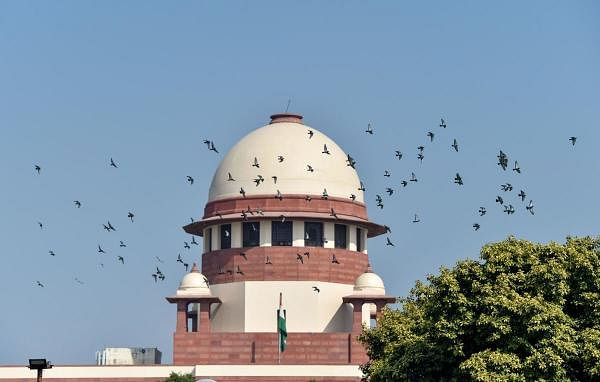
The Supreme Court on Tuesday ruled that search engines like Google can't claim any protection for the posting of defamatory contents, prior to reading down of the provision of the Information Technology Act in 2009 that required an internet service operator to take down third-party information only upon a court direction.
“We hold that Section 79 of the Act, prior to its substitution, did not protect an intermediary in regard to the offence under Section 499/500 (defamation) of the IPC,” a bench of Justices Mohan M Shantanagoudar and K M Joseph said.
The top court noted following substitution of Section 79 of the IT Act since October 27, 2009, and the judgement in the Shreya Singhal case, the provisions were read down to mean that it would require an internet service operator to remove the third-party information not on mere knowledge of objection to its continuance but only after an impartial adjudication by a court.
Google India Private Ltd contended that the Google groups' website is a platform enabling users to post their content online which was developed outside India and that no employee has access or ability to remove or delete the content when once it is posted on the Google Groups website.
The bench said this contention could be raised before the trial court.
It was also contended by the company that this was not open to it to unilaterally decide on the removal of matter and it can act so on the basis of the request only if there is a court order. Any other view would make it a despot strangling the free flow of ideas which is what the internet is all about.
“It is, undoubtedly, true that Article 19(1)(a) (freedom of speech and expression) and Article 19(2) of the Constitution were very much available in 2008 and 2009 though Section 79 was in its erstwhile avatar. In other words, will it not be open to the appellant, assuming it to be the intermediary, to contend that it cannot be called upon to remove, defamatory matter comprised in any third-party information without there being a court order,” the bench asked.
The court passed its 148-page judgement on an appeal filed by Google India Private Ltd against a Andhra Pradesh High Court verdict. The defamation proceedings were initiated by Vishakha Industries Ltd, which was into manufacturing and marketing of asbestos cement sheets since 1981, after the coordinator of 'Ban Asbestos India', a group, was hosted by Google with articles regarding various issues including ill-effect of the materials.
“We reject the contention of the appellant that the HC should have acted on the Google LLC conditions and found that the appellant is not the intermediary. We hold that this is a matter for trial,” the bench said.
